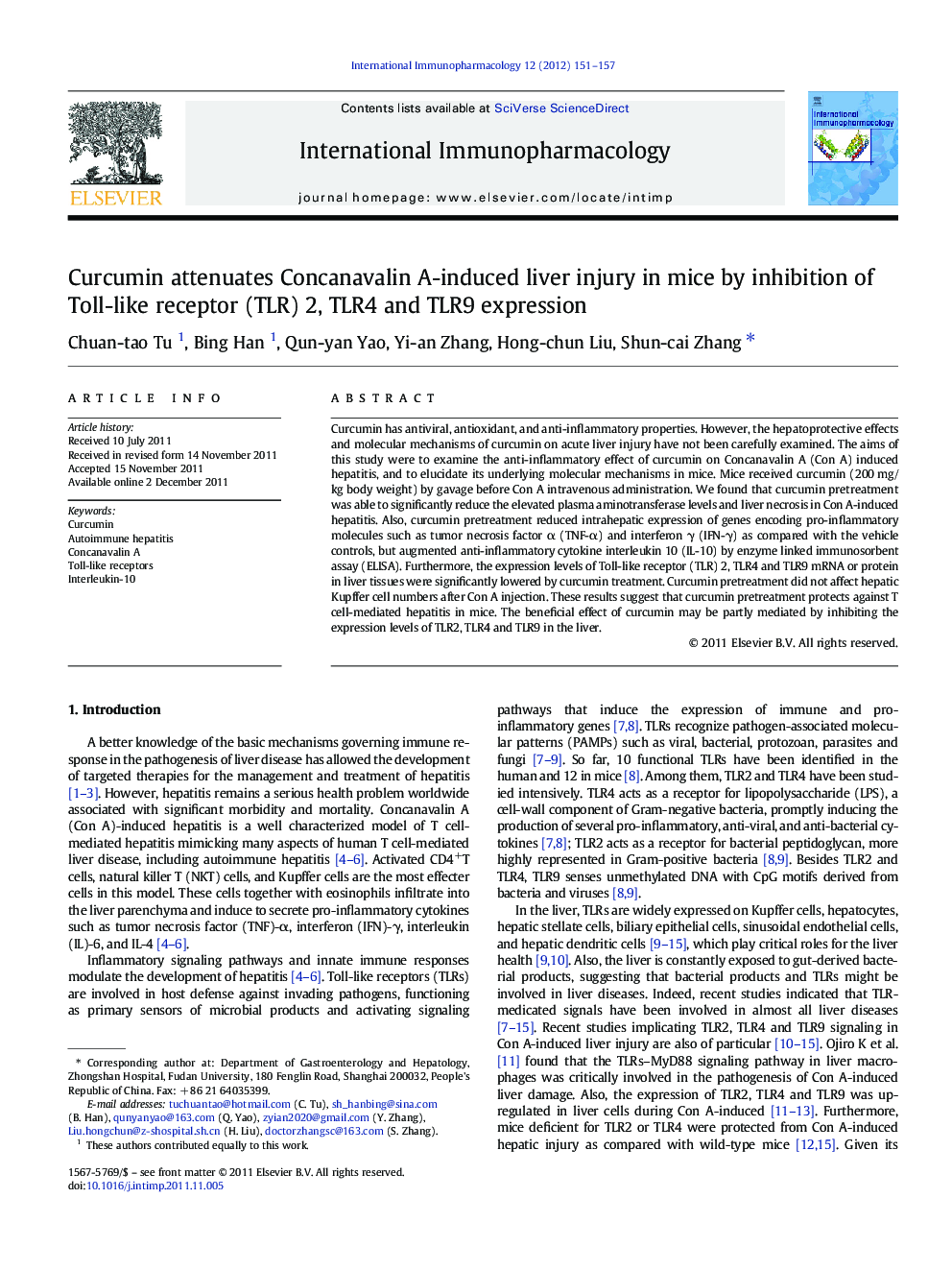| Article ID | Journal | Published Year | Pages | File Type |
|---|---|---|---|---|
| 2540989 | International Immunopharmacology | 2012 | 7 Pages |
Curcumin has antiviral, antioxidant, and anti-inflammatory properties. However, the hepatoprotective effects and molecular mechanisms of curcumin on acute liver injury have not been carefully examined. The aims of this study were to examine the anti-inflammatory effect of curcumin on Concanavalin A (Con A) induced hepatitis, and to elucidate its underlying molecular mechanisms in mice. Mice received curcumin (200 mg/kg body weight) by gavage before Con A intravenous administration. We found that curcumin pretreatment was able to significantly reduce the elevated plasma aminotransferase levels and liver necrosis in Con A-induced hepatitis. Also, curcumin pretreatment reduced intrahepatic expression of genes encoding pro-inflammatory molecules such as tumor necrosis factor α (TNF-α) and interferon γ (IFN-γ) as compared with the vehicle controls, but augmented anti-inflammatory cytokine interleukin 10 (IL-10) by enzyme linked immunosorbent assay (ELISA). Furthermore, the expression levels of Toll-like receptor (TLR) 2, TLR4 and TLR9 mRNA or protein in liver tissues were significantly lowered by curcumin treatment. Curcumin pretreatment did not affect hepatic Kupffer cell numbers after Con A injection. These results suggest that curcumin pretreatment protects against T cell-mediated hepatitis in mice. The beneficial effect of curcumin may be partly mediated by inhibiting the expression levels of TLR2, TLR4 and TLR9 in the liver.
Graphical abstractFigure optionsDownload full-size imageDownload as PowerPoint slideHighlights► Curcumin protects against hepatitis following intravenous Concanavalin A. ► The beneficial effect of curcumin may be partly mediated by inhibition of TLR2, TLR4 and TLR9 expression. ► Curcumin may act as anti-inflammatory and immunomodulatory agent to treat inflammatory liver diseases.
